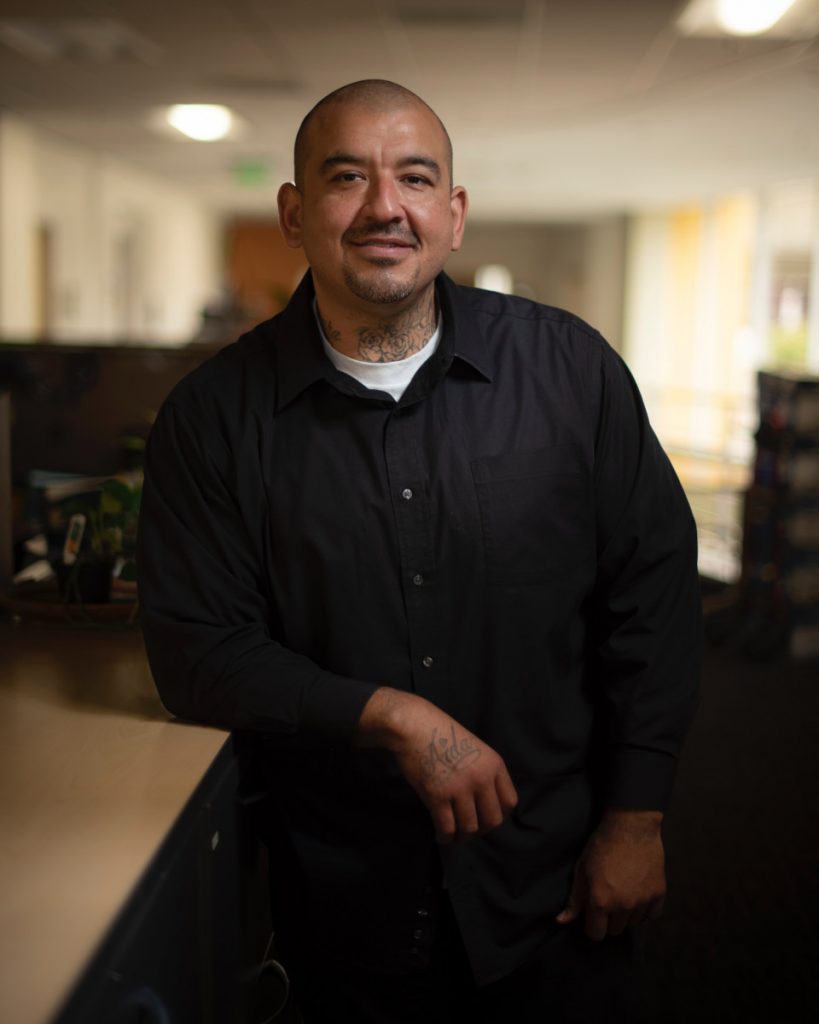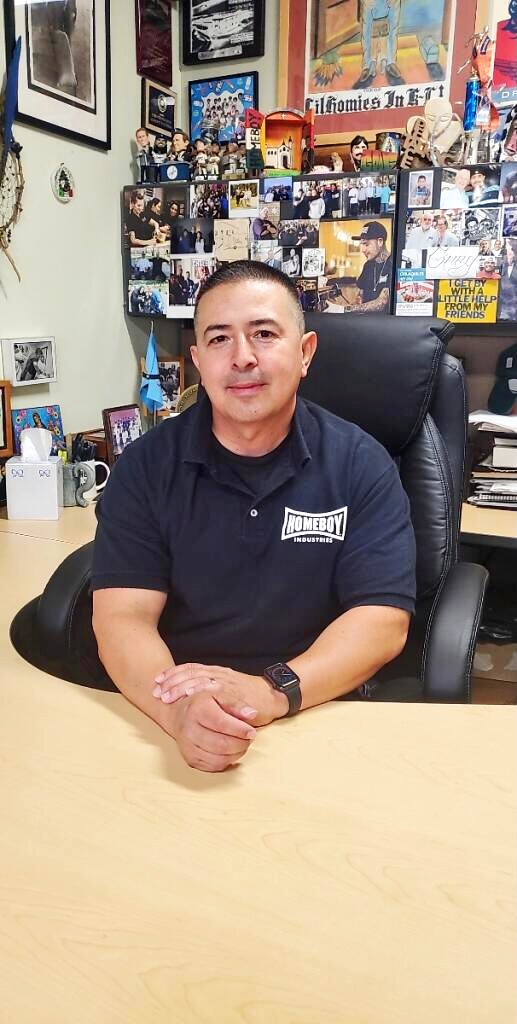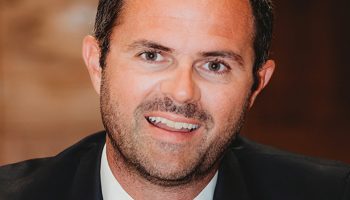MAX ZAMBRANO – STAFF WRITER

Sometimes, the mere presence of Jose Arellano and Steve Avalos is enough to impact someone’s life.
While in Chautauqua this week, Arellano said a neighbor introduced himself. The man grew up in a predominantly white community as a person of color and had been coming to Chautauqua for around a decade. Just seeing Arellano and Avalos on the grounds impacted the man’s life.
This gives Arellano and Avalos the inspiration to go back to Los Angeles-based Homeboy Industries, the largest gang rehabilitation and reentry program in the world, where they are co-directors of case management and navigation.
The Homeboys will take the Amphitheater stage at 1 p.m. Thursday, Aug. 5 for their lecture “The Power of Empathy: Live It or Create it.” It is the final Week Six Interfaith Lecture themed “Building a Culture of Empathy.”
Before becoming Homeboy “navigators” — who help “trainees” by assisting with the transition out of the gang lifestyle and culture — Arellano and Avalos were trainees themselves.
Arellano’s family was in gang culture. Despite excelling at school, Arellano got involved with a gang by age 12. Three years later, he was in jail for the first time.
Arellano said there was always someone to give him hope even in the darkest times, including when he was facing a life sentence in prison.
“I had given up,” Arellano said. “I felt it in my soul, like, ‘I don’t want to do this anymore,’ and I remember I couldn’t even get out of bed, I couldn’t eat.”
His cellmate was an older man from Pakistan.
“I remember he tapped my bunk one day, and he said to me, ‘I can’t sit by and watch you do this to yourself,’ ” Arellano said. “I got up and said, ‘Watch me do what to myself?’ He said, ‘Watch you go through what you’re going through. You know what your problem is? You don’t keep your mind and your body in the same place. Your body is in here, but your mind is out there. If you keep your mind and your body in the same place, you will have perfect peace.’ ”

That changed his life.
“I said, ‘Damn, how even in this dingy cell do I get blessed with this human being that in one of my most hopeless states, he was able to infuse hope in me?’ ” Arellano said. “That’s been the story of my life.”
Arellano and Avalos met about eight years ago, working through the program in Los Angeles separately.
“We both had separate roles in the organization early on, and just kind of seeing him and where he was at, he walked it, he talked it, so I always found inspiration from him, but we never really talked much,” Arellano said.
At Homeboy Industries, problem-solving as navigators is a complicated and complex task.
“It’s complex trauma, so it can’t just be so simple a solution sometimes,” Arellano said. “We really have to assess every situation because we’re dealing with people’s lives. Human beings, we’re complicated, and our population, they come from extreme trauma and poverty and some of the stuff they go through on the daily and some of the stuff they’ve been through is very complicated. There’s a lot of layers to it.”
Avalos said his relationship with Arellano has strengthened from working together with trainees, leadership and sitting in counsel.
“A lot of times we disagree and then we come to a middle. It’s good,” Avalos said. “Sometimes, I don’t see it his way until the end, and sometimes I do. It’s one of those relationships, but we know our intentions.”
Ultimately, both want an intentional process while working with trainees.
“We don’t want to just make decisions rapidly,” Arellano said. “We want to talk through every process with the individual. We want to be sure they feel seen, that they feel heard and they have a part in their transformation, as well.”
Avalos loves the work he does at Homeboy, and he feels more drained when he isn’t working. He doesn’t even see it as work, he said.
“You see a lot of gang members or people you would maybe avoid, or walk on the other side of the street, and then you realize how kind and compassionate they are — and when they’re not, it’s because they’re broken,” Avalos said. “When you start to see those things, that changes everything.”
Director of Religion Maureen Rovegno compared the Homeboys’ story to that of Tuesday’s speaker, Edgar Rodriguez, the pastor and police chief from Moville, Iowa.
“Their stories are the rest of the story, where we’ve got the chief of police who does this compassionate policing, and Jose and Steve have both been recipients of that compassion,” she said. “Homeboy Industries walks the talk of caring and compassion in the way we wish every organization, every church, every company and every community would live and be and do.”
The two will take turns sharing their stories and wisdom at today’s lecture, she said.
When someone makes a wrong decision, people tend to dehumanize them, unless it’s their child or someone they are close to, Avalos said. He wants that same perspective applied to everyone, even strangers.
Experiences shape people, Arellano said, so finding one positive experience or relationship in a sea of negative experiences can change someone’s life.
“It will reshape the way you see yourself, and it will help reshape the way you see the world,” he said.




